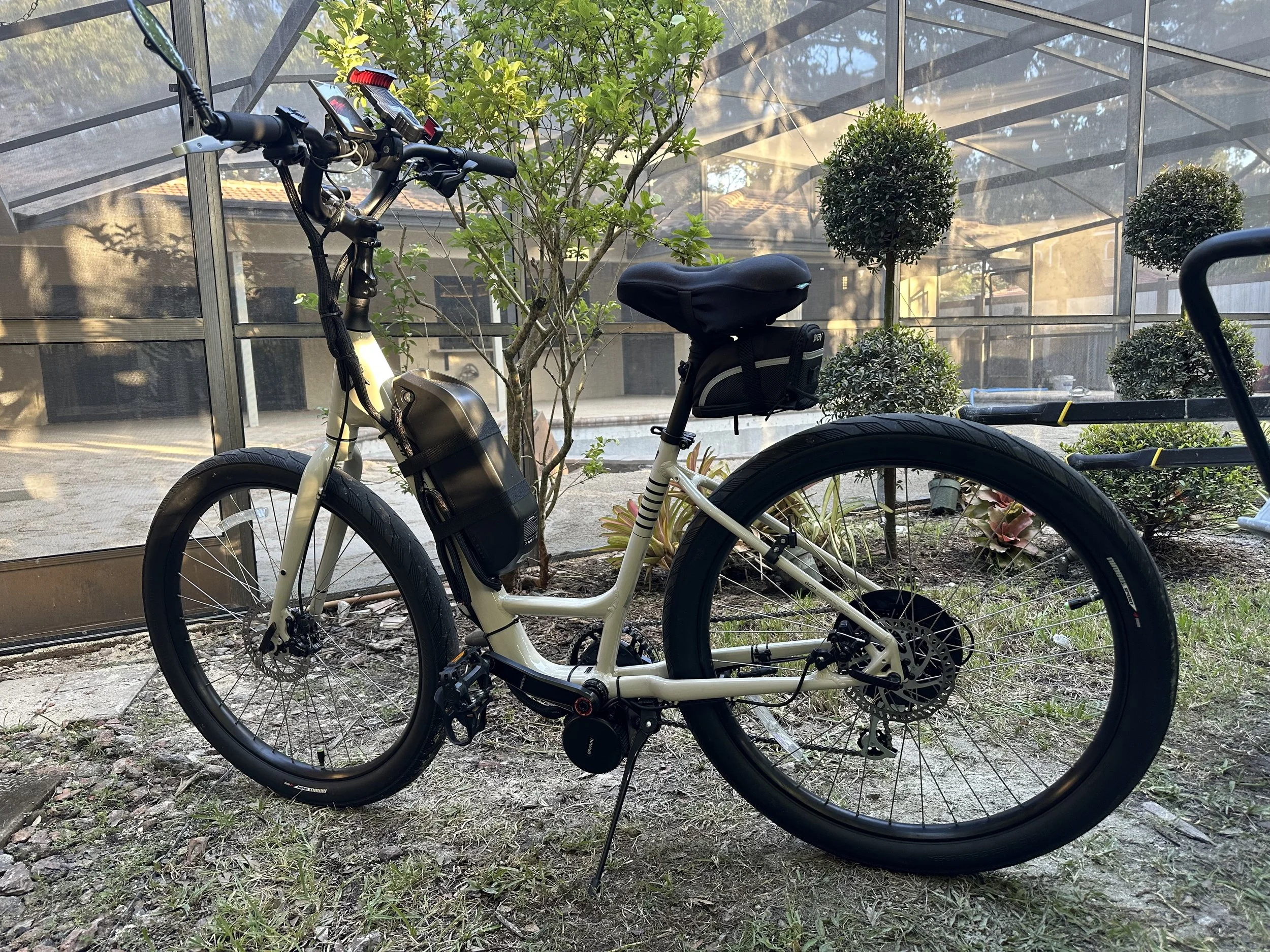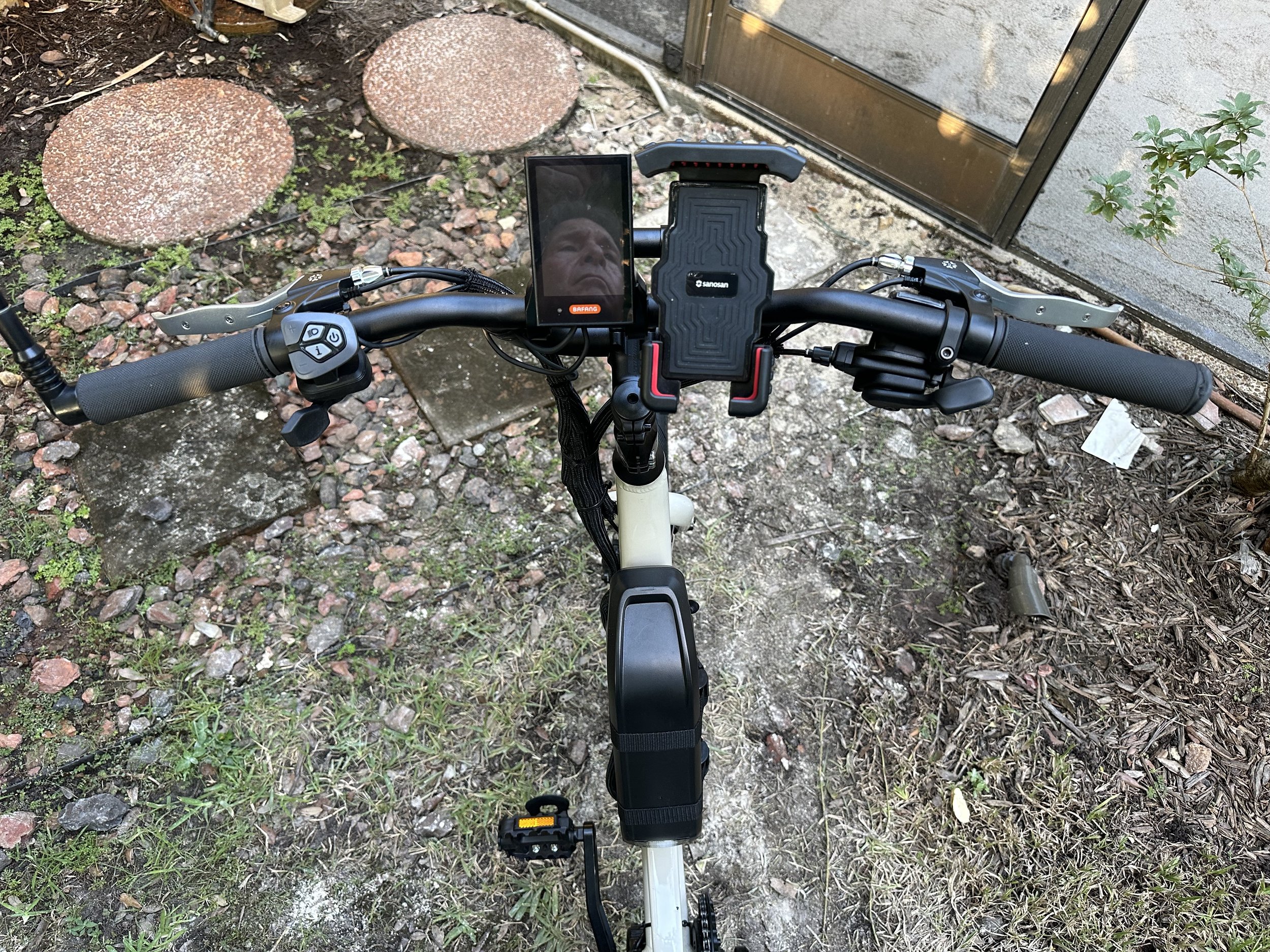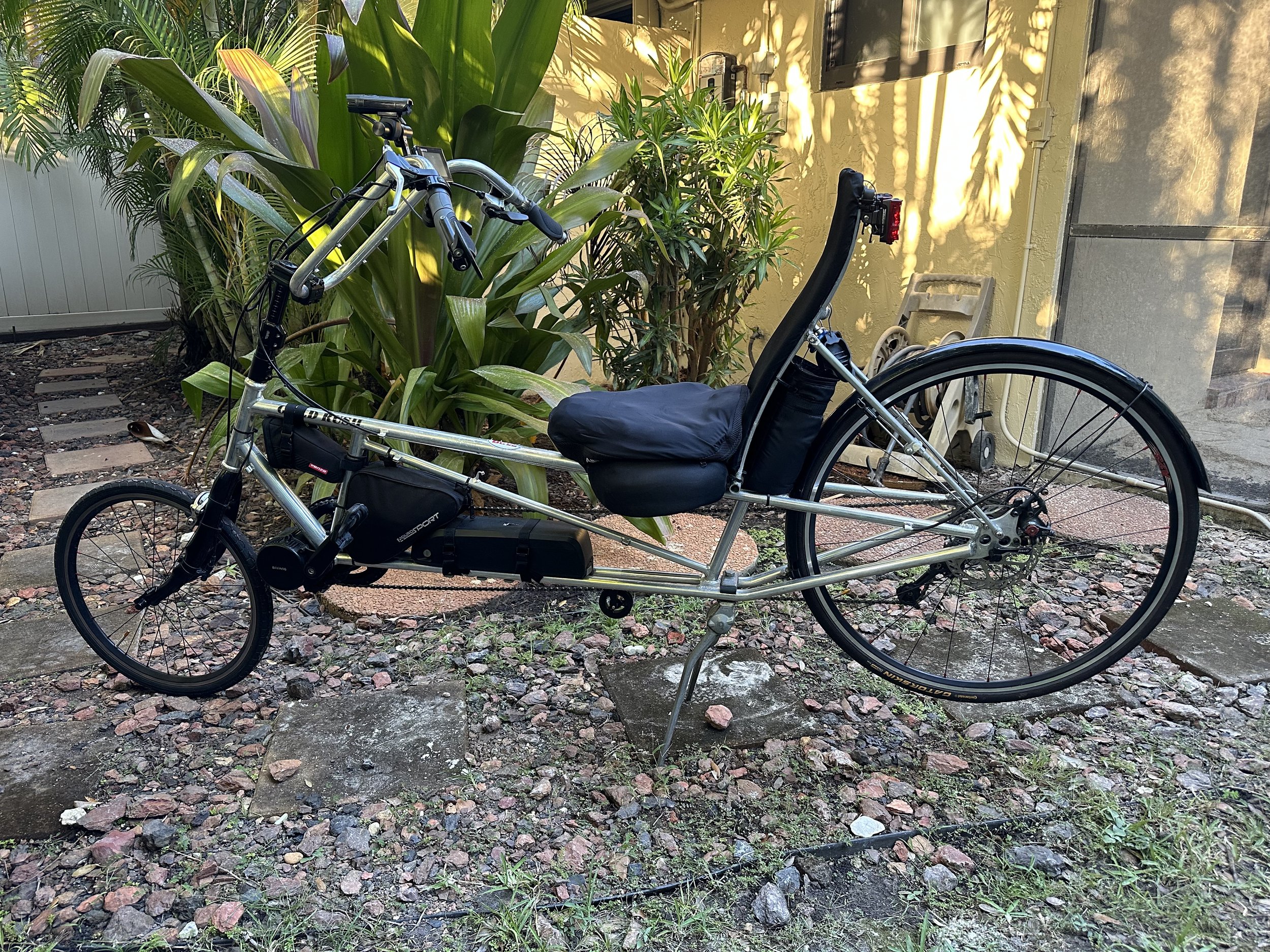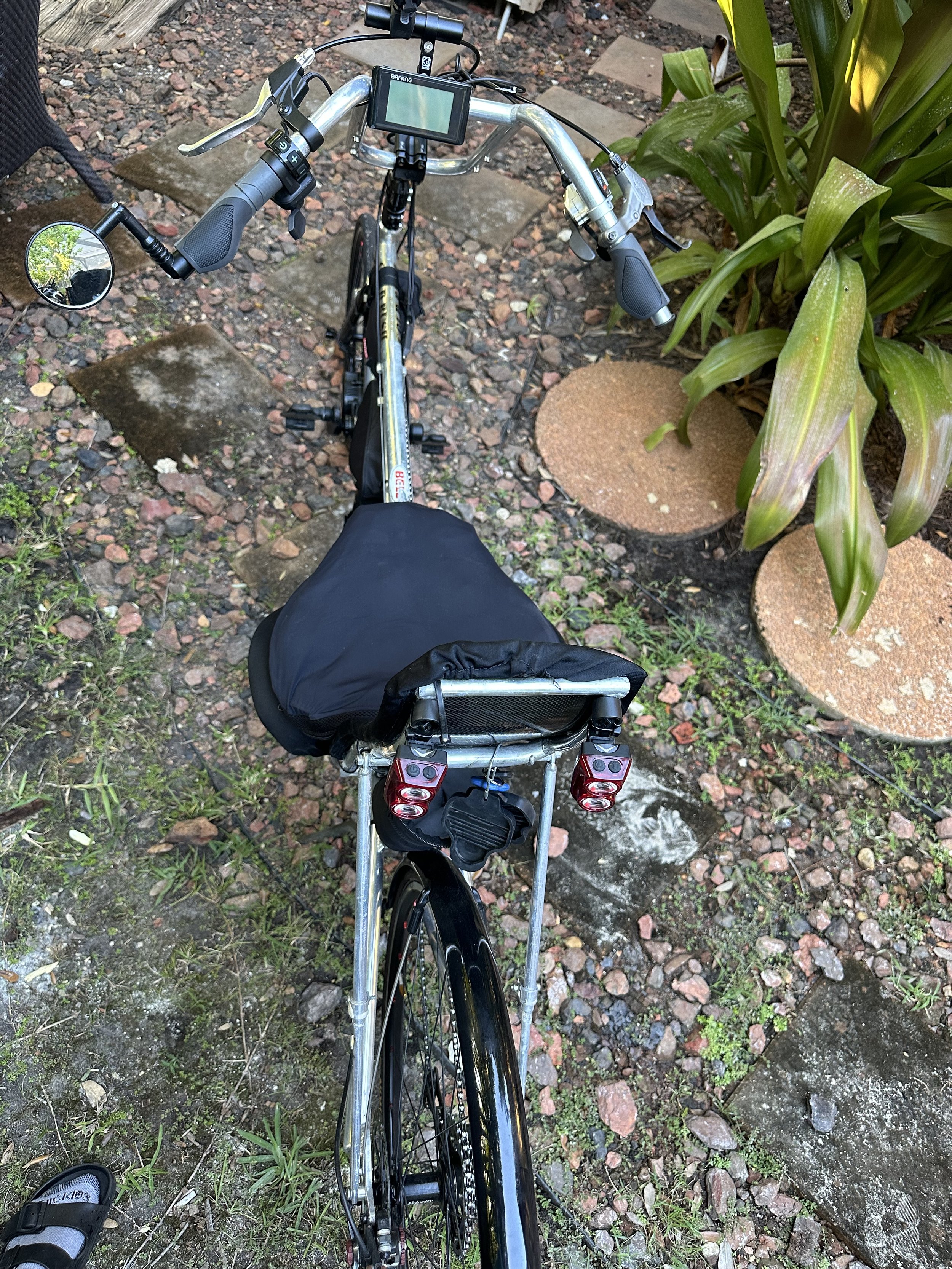Embracing Change: Cycling for Diverse Abilities and an Aging Generation
An Enthusiast’s Point of View on E-Bikes
By Jay Gottlieb
If all things were equal—and they never are—I would still be riding my upright, carbon-fiber, Specialized Epic Pro bike under my own power. But in my early 30’s, while jogging, I was hit by a car, injured my back, neck, and shoulder, and underwent multiple surgeries.
My rehab physician helped me figure out how to get back on a bicycle: with the proper angle flexions, I was able to start riding again, but on a recumbent bike.
Jay Gottlieb is able to continue cycling by using a recumbent e-bike.
Fast-forward nearly forty years, and three years ago, I developed cardiac arrhythmia. I started beta blockers and received clear medical instructions to keep my heart rate below 110 beats per minute. What’s a bicyclist to do? I converted my Easy Racer Gold Rush recumbent bike to an electric assist. I was able to continue bike riding once again.
I am not an e-bike expert, but I am an enthusiast. I think you can understand why. So, what is the future of e-bikes and how should they be treated? In the U.S., both bicycling and downhill snow skiing (two of my passions) were embraced by Baby Boomers and became quite popular. As my generation aged, both sports declined in popularity. E-bikes may be part of the answer to rekindling bicycling as a sport and as an industry.
Human nature dictates that everything new is met with a degree of fear, reluctance, and resistance. The e-bike revolution is no exception. Are new rules, laws, and regulations necessary and, if so, what restrictions should we seriously entertain?
Common sense would say that any regulations should be centered on the safety of the rider, other bike riders, pedestrians, and the automobile drivers with whom we share the roads. I propose that we may only need to enforce laws that already exist and to increase education for all involved with biking. If everybody on an e-bike follows the existing rules and laws, there would be little or no need for any new regulations. If the speed limit of 16 to 18 miles per hour is safe for a conventional bike on a particular bike trail, then it’s also a safe speed for e-bikes on that trail. It wouldn’t matter the “class” of the e-bike.
Likewise, if competitive cyclists use e-bikes for unfair advantage in races, then associations and clubs certainly should have the right to ban them.
My wife and I both have e-bikes. She rides with me only on bike paths in Colorado. The electric assistance of her bike allows us to ride together. We typically ride at 16 to 18 mph for 35 to 45 miles, and we often get passed by conventional bicyclists. We often stop to eat at our favorite places along the way. We sometimes climb 1,500 to 2,000 feet during our rides. With e-bikes, we can enjoy rides like those we did in our 30’s.
Now in Florida, I ride my recumbent road bike with three different bicycle clubs. I stay toward the back of the pack. (Most upright riders don’t like riding behind recumbent riders, as we produce very little draft. I understand this and I’m not offended.) I use the least electric assist needed to keep up with the group, and to keep my heart rate below 110 bpm.
If I start falling behind the group, a very light tap of the throttle is like having a friend put his hand on my shoulder and give me a gentle nudge. I believe this technique has made me a stronger bike rider. If I used my e-assistance to race others or go too fast, I’m sure that I’d be called out—justifiably—by members of these groups.
I’m 70 years old now. I keep modifying things in my life so that I can continue enjoyable activities as long as possible. In skiing, that means shorter and more parabolic skies, no bumps or jumps, and only skiing “groomers.” In bicycling, that means a recumbent bike and electric assist.
I am healthier and feel better when I am active. I will continue to modify my life as required and hopefully have many more roads to bike, slopes to ski, cars to race, motorcycles to ride, and days to work.
Some of my biking friends tell me that with my e-bike, I am cheating. I answer with, “Yep, I’m cheating death!” And have been for more than forty years.
---
Dr. Jay Gottlieb is an active member of the South Broward Wheelers bicycle club. He’s board-certified in Ear, Nose and Throat, Facial Plastic Surgery, and Dermatology, and practices dermatology in Pembroke Pines. Jay and his wife Shirley spend about a quarter of the year in Colorado and most of their time in Florida. In addition to bicycling, Jay enjoys alpine skiing, motorcycles, and sports cars. He hopes to reframe how communities view e-bikes and create new perspectives on how e-bikes can enhance the cycling movement in general.





